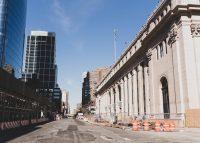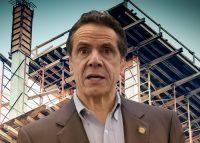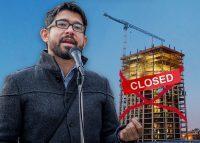The state has changed its guidance on what is considered essential construction, broadening what projects are permitted and muddying the water for affordable housing development in the city.
Empire State Development on Thursday exempted construction on “existing (i.e. currently underway) projects of an essential business” from Gov. Andrew Cuomo’s order shutting down non-essential construction sites. For example, work that was underway on grocery stores or certain manufacturing facilities at the time of the governor’s order appears to now qualify as essential.
The state’s updated guidance also defines affordable housing construction differently from how the city does. The state now considers affordable housing to be any project where 20 percent of the residential units will be income-restricted or subject to a regulatory agreement.
The agency had set the same 20 percent threshold last month, but the city’s Department of Buildings later clarified that projects needed at least 30 percent affordability or an inclusionary housing agreement. It’s unclear if the state’s guidance will change how the city classifies essential affordable projects going forward.
A representative for the Department of Buildings indicated that the agency is reviewing the new guidance. The state agency could not immediately comment.
Restrictions on construction have changed repeatedly in the past few weeks. Initially, all constriction was spared from the governor’s March 18 order barring non-essential employees from reporting to work. A little over a week later, the governor specified that only work on essential projects — healthcare facilities, homeless shelters, transit projects and affordable housing — could proceed.
In addition to clouding what qualifies as affordable housing, Thursday’s guidance added private and public schools to the list.
Read more of our coronavirus coverage





As of Thursday, more than 600 sites throughout the city are considered exempt affordable housing projects, according to Department of Buildings data. The agency has received 1,758 applications seeking essential status for projects and approved 831 wholly or partially. For emergency work — for example, to prevent a danger to occupants or the public — the agency has received 1,071 applications and rejected 595.
Last month, the city’s Department of Design and Construction indefinitely suspended all design work with outside contractors. The city told Curbed that projects are being reviewed on a case-by-case basis but design work has paused “given the evolving budget situation.”
In a statement Thursday, New York Building Congress President Carlo Scissura said it is “imperative” that the city honor its contracts and that pre-construction work be allowed to continue.
“As New York City grapples with the outbreak of Covid-19 and the tremendous economic uncertainty it has created, a halt on design work will hinder our city’s ability to make a swift economic recovery and unnecessarily damage the long-term vitality of many small businesses, MWBEs and workers in the building industry,” he said.
The trade group president said the decision sidelines people who were working from their homes.
“While safety is always the top priority and difficult decisions must be made in times of crisis, eliminating opportunities for hardworking New Yorkers who are doing their jobs safely from home should not be an option,” he said.
Write to Kathryn Brenzel at kathryn@therealdeal.com
